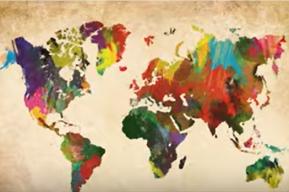News
COVID-19: research partnership launched with Harvard’s Department of Sociology on racism and xenophobia
UNESCO has launched a partnership with the AAPI COVID-19 Project, housed in Harvard University’s Department of Sociology. The AAPI COVID-19 Project is a multi-method project investigating how COVID-19 is shaping the lives of Asian Americans and Pacific Islanders (AAPI) communities in the United States, focusing on the intensification of racism and xenophobia faced by these groups.

Since the beginning of the COVID-19 pandemic, anti-Asian rhetoric and anti-Asian hate crimes have increased significantly, with the STOP AAPI HATE Reporting Center documenting over 1,500 cases since early March. This project looks at how racism and xenophobia have impacted this diverse demographic, which encompasses 22 million people and 50 ethnic groups, in the midst of this public health crisis.
Led by sociologists of race and ethnicity, disasters, and inequality, the project brings together ten faculty and graduate students at research and teaching institutions across the United States. Investigating how AAPI people are leveraging social networks and reconstituting communities in the face of COVID-19, the research project focuses on six key areas:
1) labour and economy;
2) caregiving;
3) health;
4) education;
5) community-based organizing and advocacy;
6) online media.
The research team will carry out this project in three phases over the next two years, conducting interviews, surveys, and ethnographic fieldwork. The team has begun research on two of the project’s areas, examining how AAPI families & young adults and AAPI businesses & workers respectively, are coping through the pandemic. As a collaborative, multi-sited study, the AAPI COVID-19 Project joins a supportive network of researchers studying the effects of the pandemic, including those at the Natural Hazards Center at the University of Colorado Boulder.
In addition to studying the harms of the pandemic, the project also explores how AAPI community members are mobilizing during the crisis to support their neighbors through organizing efforts, such as with the Bronx Mutual Aid Network led by Thahitun Mariam and the Auntie Sewing Squad founded by Kristina Wong.
The AAPI COVID-19 Project’s partnership with UNESCO’s International Coalition of Inclusive and Sustainable Cities – ICCAR is an important opportunity to bring together cutting-edge data and policy expertise to combat racism and xenophobia that has intensified in many cities throughout the pandemic. As Vivian Shaw, the project’s lead researcher puts it:
With UNESCO’s support, data collected from the AAPI Project can be shared on a wider platform, promoting the project and further combatting racial and xenophobic behaviours during the pandemic. By sharing data collected, findings and messages with the ICCAR network, the AAPI project will contribute to the elaboration of more inclusive policies aimed at supporting AAPI communities in the member cities of the US Coalition of Cities, and providing policy advice to other Coalitions. The AAPI project will also contribute curriculum material for the Master Class Series against Racism and Discriminations in order to raise awareness on these issues among young people and empower them to act in their local communities.
Related links








